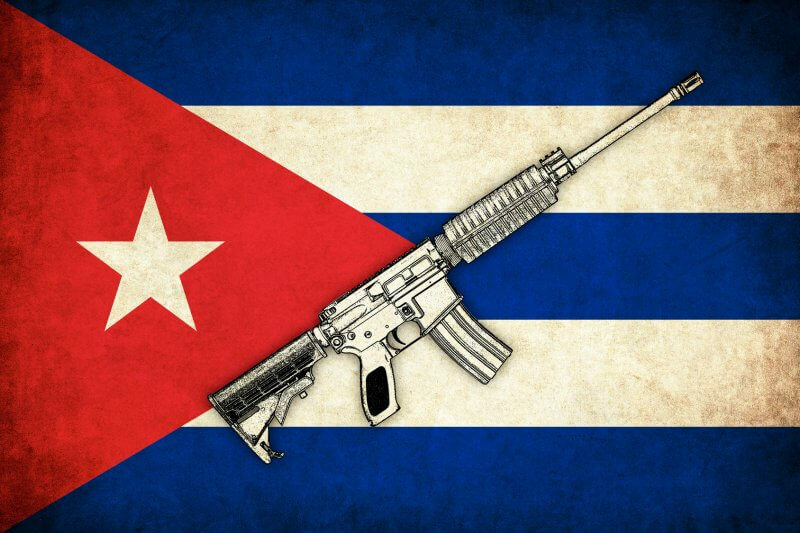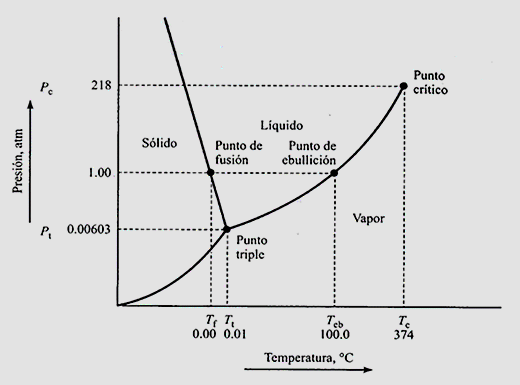Definition of Cuban War
Miscellanea / / July 04, 2021
By Guillem Alsina González, in Dec. 2017
 Cuba was, along with the Philippines, the last overseas colony of Spain to gain its independence, plunging the country colonizer in a deep crisis that would mark his immediate history, perpetuating the consequences even until today.
Cuba was, along with the Philippines, the last overseas colony of Spain to gain its independence, plunging the country colonizer in a deep crisis that would mark his immediate history, perpetuating the consequences even until today.
The war in Cuba is the armed confrontation from 1895 to 1898 that led to the island's independence from the Kingdom of Spain, thanks to US aid.
It is not the only confrontation between the colony and the metropolis; from 1868 to 1878 the so-called Big war, a popular uprising due to the treatment that the government de Madrid dispensed to the island, which had neither voice nor vote in its own destiny, despite the existence of laws (which in practice did not apply) that allowed a certain autonomy.
Politically, Cubans did not have basic freedoms, such as assembly, if it was not supervised by officials of the Madrid government.
Culturally, the hodgepodge of peoples in Cuba led to a differentiation between who was Cuban and who was Spanish.
The Big war and its continuation, the Little war (1879-1880) ended in defeats for the Cuban independence supporters.
Despite the theoretical improvements of the status of the island that were negotiated, these neither satisfied the independentistas (already convinced that the autonomy offered would always be insufficient), nor were they ever fully applied.
The next crash was therefore inevitable, and the third (as the saying goes) was the good one.
The architect of this third and successful uprising was José Martí, a patriot and activist for independence, who from his exile in the United States, prepared the details.
Martí had experience, and was able analyze the two previous attempts to draw conclusions and try not to repeat the same mistakes.
The main handicap facing the revolutionaries was the increasing militarization of the island; With the two preceding conflicts, the Spanish military authorities increased the number of troops present to "pacify" the island, while the Hispanic civil authorities increased the quota of immigrants.
The uprising that gave way to War of independence It began on February 24, 1895 in various villages in the eastern part of the island of Cuba.
The two great leaders of the uprising, José Martí and Antonio Maceo, died in the early stages of the war, becoming heroes in the historiography Cuban.
Greater in number than in previous uprisings, better organized and with more effective tactics, the revolts put the Spanish troops in serious trouble.
The Cuban uprising had American sympathy. The government of that country was cherishing an intervention.
The Monroe doctrine, followed by the United States from the first quarter of the nineteenth century, stated that America for Americans, so the remnants of a colonial empire of a European power were not well regarded by the Americans.
In addition, US economic and geostrategic interests also played their part.
To level citizen, there was also a current in the United States that advocated the intervention, whose banner was the magnate William Randolph Hearst, whose media did not tire of reviling Spain and praising the struggle of the Cuban independence activists.
Famous is his phrase when sending a cartoonist to illustrate a war that had not yet broken out (and that would face the United States against Spain on Cuban soil), and that the latter was astonished that “there was no war”, stating that “you put the drawings, I will put the war”.
In 1897, and under American pressure, Spain offered Cuba broad autonomy, with its own parliament, while freezing military actions through an armistice. It was already too late.
The Cuban people had tasted freedom, and although there were still many autonomists, for the independentistas that offer - although interesting - was already too late.
It was then that the Maine incident occurred, a North American battleship that exploded and sank in the port of Havana when she was visiting.
The US government accused the Spanish army of sabotaging the ship, thereby causing the explosion, and declared war on Spain.
Actually, what happened was an accident, exploding a magazine of ammunition that ended up causing the sinking. Decades later, exploration of the wreck revealed that the deflagration had occurred from the inside out, invalidating the thesis from a mine located in the hull.
The North American intervention was going to be the last straw that would end the conflict successfully for the independence forces.
The entry of the United States into the war first shifted operations from land to sea.
Famous is the battle of Santiago de Cuba, in which we could say that modern North American ships practiced target shooting with their Spanish enemies; plagued by a lack of budget due to the ineffectiveness of politicians in government, the fleet Spanish had languished, and had not been equipped with modern ships capable of coping with the Americans.
The Spanish authorities disdained the possibilities offered by the submarines, then still to be polished, but which could have converted to Spain in a maritime power or, at least, to give more than one scare to the North American navy in a contest that Spain had lost of beforehand.
Once the threat Assuming the Spanish fleet and, therefore, isolated Cuba, the US troops prepared for the invasion.
The ground operations of the United States Army had the support of the Cuban free forces, which, with an evident colonialist spirit, were deprived by the yankees to enter cities and celebrate triumphs with victorious marches.
That was left to the US military. Similarly, there were no delegations of Cuban independence, neither Puerto Ricans, nor Filipinos, in the Paris talks or in the subsequent agreement. that would settle colonial conflicts, since the United States did not go to battle with a liberating spirit, but to change the colonizer: from Spain to they.
The campaign on land led to the destruction of the Spanish forces, especially once they were deprived of support by sea.
Spain asked to negotiate and ended up recognizing the independence of its last North American colonies, in which a period of American colonial rule began.
The consequences for Spain were a serious economic, political and social crisis, which even left its echoes as one of the multiple triggers of the Spanish Civil War, but one of the best literary generations (known as the generation of 98, alluding to the year the conflict ended), and a certain regenerationism in some strata politicians.
Photo: Fotolia - Studio_3321
Issues in Cuban War
